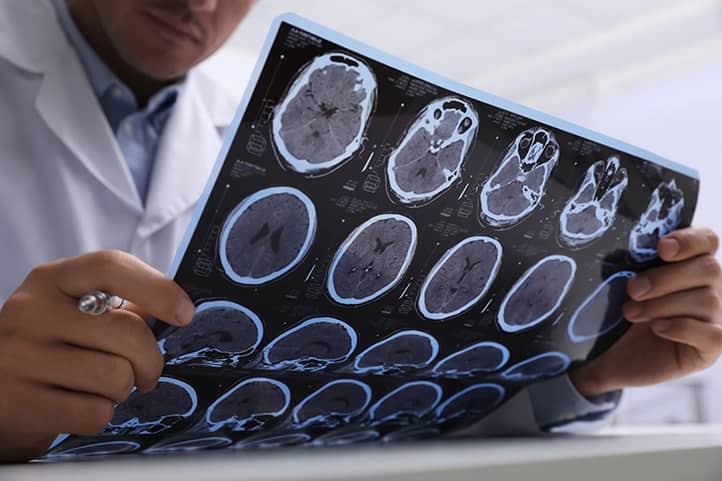Clinical psychology plays a critical role in contemporary medicine, bridging psychological knowledge and practices with a medical approach to treating various disorders and diseases. This field not only aids in diagnosing and treating mental disorders but also contributes to enhancing patients’ overall health, their adaptation to illnesses, and quality of life.
Clinical psychology is a branch of psychology focused on the assessment, diagnosis, treatment, and prevention of mental disorders and psychological issues. Clinical psychologists work with a wide range of psychological difficulties, from mild emotional disorders to severe mental illnesses.
The main goal of clinical psychology is to understand, predict, and alleviate psychological distress, dysfunction, and maladaptation. Clinical psychologists apply scientific methods and psychological principles to address real-life challenges people face in their everyday lives.
Origins of Clinical Psychology
The origins of clinical psychology trace back to the late 19th century, when psychology began to emerge as an independent scientific discipline. However, the formal recognition of clinical psychology as a distinct field occurred significantly later.
- Late 19th Century: Wilhelm Wundt founded the first psychology laboratory in Leipzig, Germany, in 1879, marking the beginning of psychology as an experimental science.
- Early 20th Century: Sigmund Freud developed psychoanalysis, significantly influencing the development of clinical psychology.
- 1896: Lightner Witmer established the first psychological clinic at the University of Pennsylvania, which is considered the official start of clinical psychology.
- World War I: Psychologists began using psychological tests to select military personnel, which fostered the development of psychodiagnostics.
- 1940s: World War II increased demand for clinical psychologists to treat service members with psychological trauma.
- 1949: The Boulder Conference (USA) established a training model for clinical psychologists, combining scientific research and practical training.
- Second Half of the 20th Century: Development of cognitive-behavioral therapy and other evidence-based treatment methods.
- Late 20th to Early 21st Century: Integration of neuroscience and psychology, leading to the advancement of neuropsychology and the biopsychosocial approach to understanding mental disorders.
Today, clinical psychology is one of the most advanced and in-demand fields in psychology, playing a crucial role in the modern healthcare system.

Key Areas of Clinical Psychology
Clinical psychology encompasses a broad spectrum of approaches to understanding and treating psychological problems. These areas reflect various theoretical foundations and practical methods of working with patients.
The development of clinical psychology has led to specialization in various areas, from working with children to gerontopsychology. Each area focuses on unique aspects of human experience and development.
Modern fields of clinical psychology often integrate knowledge from related disciplines, creating comprehensive approaches to mental health. This allows for more effective solutions to complex psychological problems in the context of a rapidly changing world.
Psychodiagnostics
Psychodiagnostics is a fundamental aspect of clinical psychology. It involves the process of assessing and measuring an individual’s psychological characteristics to establish a psychological diagnosis.
Key aspects of psychodiagnostics include:
- Clinical Interview: A structured conversation aimed at gathering information about the patient’s symptoms, life history, and current problems.
- Psychological Testing: Use of standardized tools to assess various aspects of mental functioning, including intelligence, personality, and emotional state.
- Behavioral Assessment: Observation of the patient’s behavior in various situations to identify problematic patterns.
- Neuropsychological Assessment: Examination of the relationship between the brain and behavior, especially crucial for diagnosing neurological disorders.
Psychodiagnostics plays a critical role in determining the nature of a patient’s psychological issues and selecting the most effective treatment methods.
Psychotherapy
Psychotherapy is a central component of clinical psychology, representing a systematic process aimed at changing a person’s thoughts, feelings, and behaviors to improve their psychological well-being.
There are numerous approaches to psychotherapy, including:
- Cognitive-Behavioral Therapy (CBT): Focuses on changing maladaptive thoughts and behaviors.
- Psychodynamic Therapy: Explores the influence of past experiences and unconscious processes on current issues.
- Humanistic Therapy: Emphasizes the importance of self-actualization and personal growth.
- Systemic Family Therapy: Works with the family as a system to resolve its members’ issues.
- Group Therapy: Uses group dynamics to achieve therapeutic goals.
The choice of psychotherapy method depends on the nature of the problem, patient preferences, and the psychologist’s professional training.
Rehabilitation
Rehabilitation in clinical psychology aims to restore psychological well-being after trauma, illness, or prolonged distress. It is especially important in the following areas:
- Neuropsychological Rehabilitation: Helps patients recover cognitive functions after brain injuries or strokes.
- Psychosocial Rehabilitation: Aims to improve social adaptation for people with chronic mental illnesses.
- Addiction Rehabilitation: Assists people recovering from drug or alcohol addiction to adapt to life without substances.
- Vocational Rehabilitation: Supports individuals with mental disorders in returning to work or finding new employment.
Rehabilitation programs often combine psychotherapy, skills training, and social support.
Prevention of Mental Disorders
Prevention is an important aspect of clinical psychology, aimed at preventing the development of mental disorders or minimizing their impact. There are three levels of prevention:
- Primary Prevention: Focuses on preventing the onset of mental disorders by eliminating risk factors or strengthening protective factors, such as resilience-building programs for children and adolescents.
- Secondary Prevention: Concentrates on early detection and treatment of mental disorders to prevent their progression, including screening programs and early intervention.
- Tertiary Prevention: Aims to minimize the adverse consequences of existing mental disorders and prevent relapse, including rehabilitation programs and supportive therapy.
Preventive interventions can be carried out at the individual level, as well as within families, schools, workplaces, and communities.
These four areas – psychodiagnostics, psychotherapy, rehabilitation, and prevention – form the foundation of clinical psychology and highlight its essential role in modern medicine and healthcare systems overall.

The Role of Clinical Psychology in Modern Medicine
Clinical psychology plays an increasingly significant role in modern medicine, contributing to a comprehensive approach to patients’ health and well-being. Its impact extends across various aspects of medical practice and the healthcare system as a whole.
The integration of psychological approaches into medical practice fosters a more holistic understanding of health and illness. This leads to better treatment outcomes and an improved quality of life for patients.
Clinical psychologists make a substantial contribution to developing and implementing disease prevention programs and promoting healthy lifestyles. Their work helps reduce the burden on the healthcare system and improves public health.
Integration of Psychological Knowledge in Medical Practice
The integration of psychological knowledge into medical practice is one of the key contributions of clinical psychology to modern medicine. This is reflected in the following aspects:
- Biopsychosocial Model: Clinical psychology has helped introduce the biopsychosocial model of health and illness, which considers biological, psychological, and social factors in understanding and treating diseases.
- Psychosomatic Medicine: Clinical psychologists assist in understanding and treating psychosomatic disorders, where psychological factors play a significant role in the onset and course of physical symptoms.
- Doctor-Patient Communication: Psychological knowledge improves communication between doctors and patients, enhancing treatment satisfaction and adherence to therapy.
- Stress Management: Stress management techniques developed by clinical psychologists are applied in various medical fields to improve treatment outcomes and patients’ quality of life.
Enhancement of Mental Disorder Diagnosis and Treatment
Clinical psychology has significantly influenced the diagnosis and treatment of mental disorders:
- Development of Diagnostic Criteria: Clinical psychologists contribute to the development and refinement of diagnostic systems, such as the DSM (Diagnostic and Statistical Manual of Mental Disorders) and ICD (International Classification of Diseases).
- Evidence-Based Treatment Methods: Clinical psychology has facilitated the development and adoption of evidence-based psychotherapeutic methods, such as cognitive-behavioral therapy.
- Psychological Testing: The development and application of standardized psychological tests enable more accurate diagnosis of mental disorders and assessment of treatment effectiveness.
- Comprehensive Treatment Approach: Clinical psychologists help integrate psychological and pharmacological treatment methods for optimal outcomes.
Increasing the Effectiveness of Somatic Disease Treatment
The contribution of clinical psychology to the treatment of somatic diseases is becoming increasingly significant:
- Psychological Support for Chronic Diseases: Clinical psychologists help patients cope with the emotional and behavioral aspects of chronic illnesses, such as diabetes, cardiovascular diseases, and cancer.
- Behavioral Medicine: Application of psychological principles to change lifestyle and health-related behavior (e.g., smoking cessation, diet adherence, physical activity).
- Pain Management: Psychological methods, such as relaxation and cognitive-behavioral therapy, effectively complement medication for chronic pain management.
- Preparation for Medical Procedures: Psychological interventions help reduce anxiety and improve outcomes for surgical and other medical procedures.
Assisting Patients’ Adaptation to Chronic Illnesses
Clinical psychology plays a vital role in helping patients adapt to life with chronic illnesses:
- Coping Strategies: Teaching patients effective strategies for managing symptoms and limitations related to their illness.
- Psychoeducation: Providing patients and their families with information about the illness and ways to manage it, which enhances a sense of control and reduces anxiety.
- Decision-Making Support: Assisting patients in making complex decisions related to their treatment and lifestyle.
- Family Work: Involving family members in the adaptation and support process, which improves long-term outcomes.
- Support Groups: Organizing and leading support groups for patients with similar conditions, promoting experience-sharing and mutual support.
The integration of clinical psychology into modern medicine promotes a more holistic approach to health, taking into account not only the physical but also the psychological aspects of patient well-being. This leads to better treatment outcomes, improved patient quality of life, and more efficient use of healthcare resources.

Methods and Tools of Clinical Psychology
Clinical psychology employs a wide range of methods and tools for the assessment, diagnosis, and treatment of psychological issues. These methods are continually evolving and improving, reflecting advances in the understanding of human psyche and behavior.
Modern technologies open new opportunities for clinical psychology. Virtual reality, online therapy, and mobile applications are becoming essential additions to traditional methods.
Psychometric tests and questionnaires continue to play a key role in clinical psychology. They provide an objective evaluation of patients’ psychological state and help monitor treatment progress.
Psychological Testing
Psychological testing is one of the main tools in clinical psychology, allowing for an objective assessment of various aspects of a person’s psychological state.
- Intelligence Tests. Examples include the Wechsler Adult Intelligence Scale (WAIS) and the Wechsler Intelligence Scale for Children (WISC), which evaluate various aspects of cognitive abilities.
- Personality Tests. Such as the Minnesota Multiphasic Personality Inventory (MMPI) or the Big Five Inventory, assessing different aspects of personality.
- Projective Techniques. Examples include the Rorschach Test or the Thematic Apperception Test (TAT), which are used to explore unconscious aspects of personality.
- Symptom-Specific Tests. Such as the Beck Depression Inventory or the Spielberger Anxiety Scale, assessing the severity of specific psychological symptoms.
- Neuropsychological Tests. Examples include the Trail Making Test or the Wisconsin Card Sorting Test, which assess various aspects of cognitive processes and can reveal brain-related dysfunctions.
Clinical Interview
The clinical interview is a fundamental method in clinical psychology, allowing the gathering of detailed information about the patient and their issues.
- Structured Diagnostic Interview. For example, the Structured Clinical Interview for DSM (SCID), which provides a systematic approach to diagnosing mental disorders.
- Semi-Structured Interview. Allows the clinical psychologist to adapt questions to the patient’s specific situation while maintaining a certain structure.
- Unstructured Interview. Enables a more free-form exploration of the patient’s issues and can be especially useful in the initial stages of therapy.
- Motivational Interviewing. A technique aimed at enhancing the patient’s motivation for change and commitment to treatment.
Psychotherapeutic Techniques
Psychotherapeutic techniques form the foundation of the clinical psychologist’s therapeutic arsenal. Here are some of the most common:
- Cognitive-Behavioral Techniques. Include cognitive restructuring, behavioral activation, exposure therapy.
- Psychodynamic Techniques. Such as free association, dream analysis, work with transference and countertransference.
- Humanistic Techniques. For example, active listening, unconditional positive regard, empathetic understanding.
- Systemic Family Techniques. Include circular questioning, genograms, family sculpture.
- Mindfulness Techniques. Meditation, body scanning, mindful breathing.
- Relaxation Techniques. Progressive muscle relaxation, autogenic training, visualization.
Neuropsychological Research
Neuropsychological research is becoming an increasingly important part of clinical psychology, especially in the context of integrating psychology and neuroscience.
- Neuropsychological Assessment. Involves comprehensive testing of various cognitive functions (memory, attention, executive functions, etc.) to detect brain-related dysfunctions.
- Neuroimaging. While clinical psychologists typically do not conduct these studies themselves, they often interpret MRI, fMRI, PET scan results in the context of the patient’s psychological functioning.
- Neurofeedback. A technique that enables patients to learn to control certain aspects of brain activity through real-time feedback.
- Cognitive Rehabilitation. A set of techniques aimed at restoring cognitive functions after brain injuries.
These methods and tools allow clinical psychologists to conduct a thorough assessment of the patient’s psychological state, make accurate diagnoses, and develop effective treatment strategies. It is important to note that the choice of specific methods and tools depends on the individual characteristics of the patient, the nature of their issues, and the psychologist’s theoretical orientation.

Interaction of Clinical Psychologists with Other Specialists
Effective collaboration between clinical psychologists and other medical professionals is a key factor in providing comprehensive medical care. This cooperation contributes to a deeper understanding of the link between mental and physical health.
Clinical psychologists often work in interdisciplinary teams, where their expertise complements the knowledge of other specialists. This approach enables the development of more effective treatment and rehabilitation strategies.
Knowledge exchange between clinical psychologists and other medical professionals promotes the development of new research and practice areas, leading to innovative approaches in treating various conditions.
Collaboration with Psychiatrists
Collaboration between clinical psychologists and psychiatrists is essential in the field of mental health:
- Comprehensive Diagnosis. Psychologists can conduct detailed psychological testing, complementing psychiatric assessments.
- Joint Treatment. Often, therapy conducted by a psychologist is combined with medication prescribed by a psychiatrist.
- Information Exchange. Regular information exchange about patient progress and adjustment of treatment plans.
- Patient Referrals. Psychologists may refer patients to psychiatrists for evaluation of the need for medication, and vice versa.
- Research Activity. Joint research projects combining psychological and psychiatric approaches.
Working in Interdisciplinary Teams
Clinical psychologists are often part of interdisciplinary teams, especially in hospitals and rehabilitation centers:
- Neurology. Collaboration in the diagnosis and treatment of neurological disorders, conducting neuropsychological assessments.
- Oncology. Supporting patients in coping with cancer, managing stress and pain, and assisting in treatment decision-making.
- Cardiology. Working with patients on lifestyle changes, stress management, adaptation after heart attacks or surgery.
- Pediatrics. Assessing child development, addressing behavioral issues, supporting families of children with chronic illnesses.
- Geriatrics. Assessing cognitive function in the elderly, addressing depression and anxiety related to aging.
- Rehabilitation. Participating in rehabilitation programs after injuries, strokes, working with physiotherapists and occupational therapists.
Counseling Medical Staff
Clinical psychologists also play a vital role in supporting and educating medical staff:
- Training in Communication Skills. Clinical psychologists conduct training for medical personnel on effective patient communication, especially in challenging situations (such as delivering bad news).
- Stress Management. Organizing stress management and burnout prevention programs for healthcare workers.
- Consultations on Difficult Cases. Psychologists may provide recommendations for dealing with difficult patients or ethically complex situations.
- Crisis Support. Providing psychological support to medical staff after traumatic events or during periods of high stress (such as during a pandemic or war).
- Improving Teamwork. Conducting team-building activities and enhancing interaction among various specialists.
The interaction of clinical psychologists with other professionals in the medical field contributes to a more holistic approach to patient health, improves the quality of healthcare, and creates a more supportive work environment for medical staff.

Current Issues and Prospects for the Development of Clinical Psychology
Clinical psychology faces new challenges in an era of rapid technological and social changes. Adapting to these changes requires continuous updates to working methods and theoretical approaches.
The growing recognition of the importance of mental health opens up new opportunities for clinical psychology, with an increasing demand for psychological services leading to an expansion of its field of application.
Advances in neuroscience and genetics create new perspectives for understanding mental disorders. Integrating this knowledge into clinical practice may lead to revolutionary changes in the diagnosis and treatment of psychological issues.
The Introduction of New Technologies
Technological progress opens new horizons for clinical psychology:
- Telepsychology:
- Expanding access to psychological assistance through online consultations and therapy.
- Developing protocols to ensure confidentiality and effectiveness in online therapy.
- Adapting existing therapeutic approaches for online formats.
- VR Therapy (Virtual Reality):
- Creating controlled virtual environments for treating phobias and anxiety disorders.
- Using VR in the rehabilitation of patients with cognitive impairments.
- Developing virtual simulations for training clinical psychologists.
- Artificial Intelligence and Machine Learning:
- Utilizing algorithms to analyze large data sets and predict mental health disorder risks.
- Developing “smart” applications for mental health monitoring and early problem detection.
- Creating chatbots to provide primary psychological support.
- Mobile Applications:
- Developing apps for self-help and mental health support.
- Using smartphones to collect real-time data on patients’ behavior and mood.
Expanding the Scope of Application
Clinical psychology is finding new areas of application in response to modern challenges:
- Oncology Psychology:
- Developing specialized psychological support programs for cancer patients at different stages of treatment.
- Investigating psychological factors affecting the course and outcomes of oncological diseases.
- Working with patients’ families and medical staff in oncology departments.
- Psychology of Extreme Situations:
- Developing methods of psychological assistance for mass disasters, catastrophes, and wars.
- Studying resilience factors in extreme conditions.
- Creating prevention and treatment programs for post-traumatic stress disorder.
- Neuropsychology and Neurosciences:
- Integrating neuroscience advances into clinical practice.
- Developing new neurocognitive rehabilitation methods.
- Researching the neurobiological foundations of mental disorders.
- Psychology of Old Age:
- Developing programs to support cognitive health in older age.
- Studying factors that contribute to successful aging.
- Creating psychological support methods for people with dementia and their families.
Increasing Accessibility to Psychological Assistance
One of the key tasks of modern clinical psychology is to improve the accessibility of quality psychological assistance for all segments of the population:
- Integration into Primary Healthcare:
- Including clinical psychologists in primary care teams.
- Developing brief interventions for use in primary healthcare settings.
- Development of Community Psychology:
- Creating prevention and early intervention programs at the community level.
- Working with marginalized population groups.
- Cross-Cultural Competency:
- Adapting diagnostic and treatment methods for various cultural contexts.
- Training specialists capable of working with diverse populations.
- Financial Accessibility:
- Developing cost-effective models of psychological assistance.
- Advocating for the inclusion of psychological services in health insurance programs.
- Psychoeducation:
- Raising public awareness about mental health and the role of psychological assistance.
- Fighting against the stigmatization of mental disorders.
Clinical psychology stands on the threshold of significant changes driven by technological advances, new scientific discoveries, and evolving societal needs. The ability to adapt to these changes while preserving the core principles and ethical norms of the profession will shape the future of this critical field in psychology.

Conclusion
Clinical psychology has firmly established itself as an indispensable element of modern medicine, offering a unique perspective on human health and well-being. It not only enriches medical practice with psychological insights but also promotes a more humane, holistic approach to patients.
Integrating psychological and medical approaches enables the creation of more effective strategies for diagnosing, treating, and preventing both mental and somatic disorders. Clinical psychologists, working in interdisciplinary teams, help bridge the gap between physical and mental health, emphasizing their inseparable connection.
As technology advances and scientific knowledge deepens, clinical psychology continues to adapt and expand its boundaries. Personalized medicine, neuropsychology, and digital healthcare are opening new opportunities to improve population mental health. However, with progress come new ethical challenges that require careful consideration and discussion.
The future of medicine will undoubtedly be marked by an even closer integration of psychological knowledge and practices. Clinical psychology, with its focus on individual uniqueness and a holistic approach to health, will play a key role in shaping a more effective and humane healthcare system. This will not only improve the quality of life for individual patients but also make a significant contribution to public health.
Ultimately, the role of clinical




